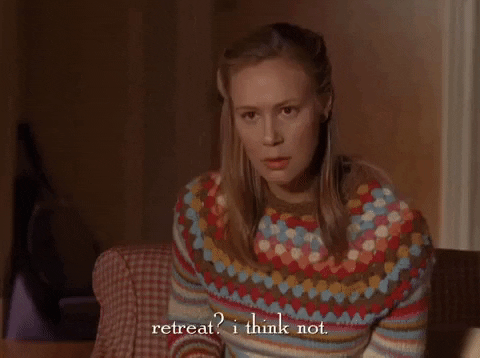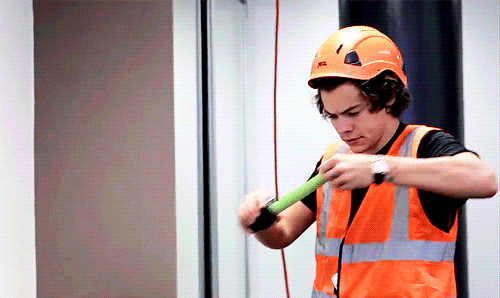
When I was a teenager, I remember going to hang out with my neighbour and seeing half her bedroom wall obscured by a ten-year plan, written out in colour-coordinated markers on a gigantic whiteboard. It was some real Paris Gellar areas, but she knew exactly where she wanted to be and what career she wanted to be doing, down to the salary she wanted to be on.
This was a girl who was determined to get what she wanted, and even now at age 25 I am afraid of this 14-year-old energy.

Every time I used to think back on that day it made me feel so unaccomplished. I didn’t have the slightest clue what I wanted to do — and I didn’t, until about six years later. Six years of thinking, “ooof, I am not succeeding in my career because I don’t even know what my career is right now”.
But I ran into that girl the other day and it turns out, she’s not doing ANYTHING that was on her high school board after all. She worked in the field for a while but quickly realised that her goals sat elsewhere after all, so she ditched the board and started making a move towards them.
Turns out, there’s a lot of opportunity to grow towards your goals if you have the right approach. Here’s how to start:

1. Set your goal
Just because you’ve been keen on doing something since you were a kid doesn’t mean you actually want to do it for the rest of your life. If that was the case, my brother would be a fire truck. Not a firefighter. A truck. Shockingly enough, that is not his current profession.
Apparently the average Australian will have multiple different jobs in their lifetime, so don’t stress if you find you might need a change. It’s totally normal, and even encouraged to try and move into another gig.
So if you’re not happy with where you are now, identify areas that you can move into. Figure out your new goal by scoping out areas of growth in your current industry — and if you feel like you need to change industries to find satisfaction, figure out what that might look like.
Start by nailing down the elements of work that really make you feel satisfied. Maybe data analysis gives you the tingles, while working directly with people makes your skin break out in hives. Maybe it’s the other way round. Then just work out how to make doing them an achievable goal, and then figure out how far away from those you are in your current gig.

2. Plan your path
Now that you have your goal, you’ve got to figure out a way to get there. Not everyone will have the same path as you — some people might be fresh out of school, others might have been in a similar role for years and are only now taking a step.
But I want to be very clear here: taking any ol’ step doesn’t count. Irish jigging your caboose over to a new team within a company that you don’t enjoy working for? That isn’t going to suddenly make all the difference and get your career back on track. But making the RIGHT step will.
Getting that promotion, changing roles or swapping careers could be as simple as getting a new qualification. CQUniversity Australia, for example, have stacks of options that can help you do it, plus your experience could help you gain entry into postgrad — even if you don’t already have an undergraduate degree. It doesn’t matter what you’re doing or how old you are — and yep, you can even study online or part-time so you can work on your red-hot knowledge without having to take the plunge and quit work entirely.
The biggest factor is making sure that whatever you do, you keep your end goal in mind, so that even if you do decide to do a lil’ toe-tapping routine on out of your current career, you know you’re heading in the right direction.

3. Stay ahead of the game
It’s so, so much easier to keep doing what you’re doing in the hope that things will passively change without you having to actually do anything. But I’m here to tell you to ditch the mantra of, “it’ll get better soon” ASAP. It ain’t going to get any better until you finally make the call to change something.
Don’t stress if you feel like you’ve gotta go big or go home though. Sometimes staying ahead of the game means chipping away at professional development over time so you’re always learning. For example, if university is your goal, you might consider doing a graduate certificate before leaping into an MBA.
The key to making it feel achievable is to break down the big goal you’ve set into smaller chunks and KEEP MAKING CHANGE. Slowly but surely, you’ll find yourself with a stronger hold on where you are and where you’re going.
Maybe it’s voicing to your boss that you need more of a challenge, or you might call it quits entirely, but either way you’ve got to be an active participant in the change. It can be super daunting to do, but it’s way better than looking back later and realising you could’ve switched things up so much earlier.

All in all, the most important takeaway is remembering that you always have options, even if you feel like you’re too established in your career to change course. Altering your trajectory doesn’t have to be a huge change, and it can be a gradual process if you’re more comfortable with that.
And hey, if all else fails, I hear whiteboards make for good planning stations.







